A viral TikTok has confirmed one of the most disturbing rumors about public bathrooms: toilet paper rolls aren’t always safe. Some people allegedly use them in a way that could end transmitting dangerous bloodborne diseases.
The revelation came after a furious father filmed himself in a restroom with his children.
“This is why you never use toilet paper from a local place with your kids or yourself,” he said filming the restroom.
Dr. Joe, a physician on TikTok with more than a million followers, stitched the clip and backed up the father’s warning.
“Okay, so this is a real thing,” he said.
A clip went viral revealing an unhygienic way some people are using toilet paper rolls

“Some people do use public toilet paper rolls to clean their dirty needles,” the doctor continued, revealing how viewers can spot dangerous signs and protect themselves.
According to Dr. Joe, beyond obvious signs such as bloodstains and dirt, which can carry dangerous pathogens, he recommended people to look for nicks or dents in the paper rolls that could indicate someone wiped a needle.
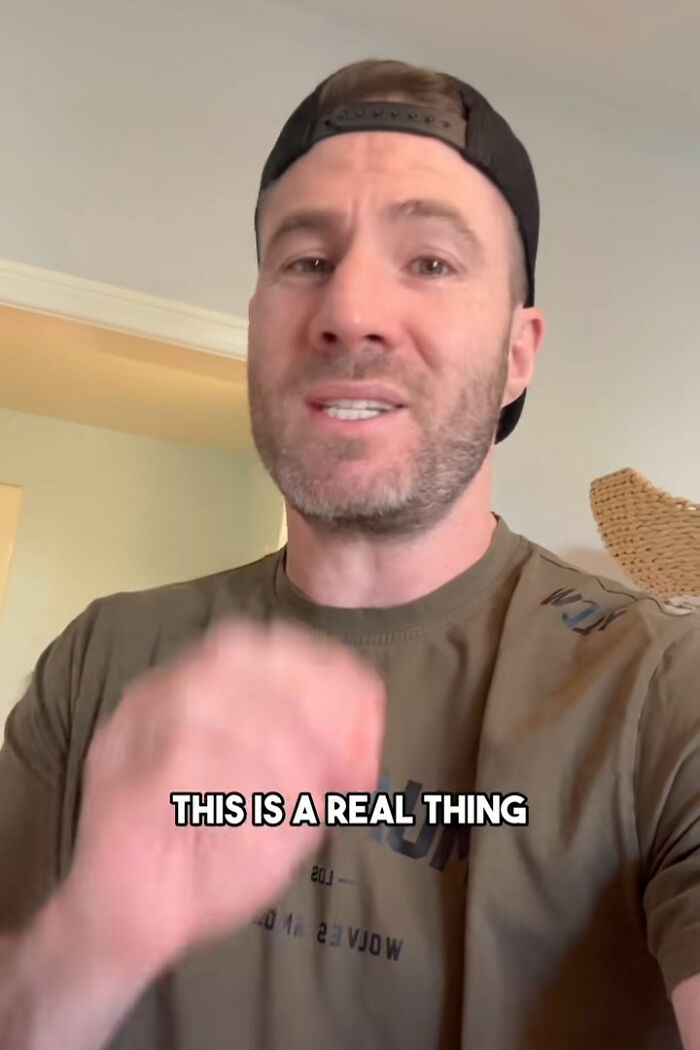
“So to keep yourself safe, it’s always best practice to carry with you in your car a set of flushable wipes,” he said.
“And if you can’t do that, make sure to inspect the roll before you use the toilet paper. If the dispenser is locked and you can’t inspect it, make sure you say your prayers before you use that toilet paper roll in some sketchy stall.”
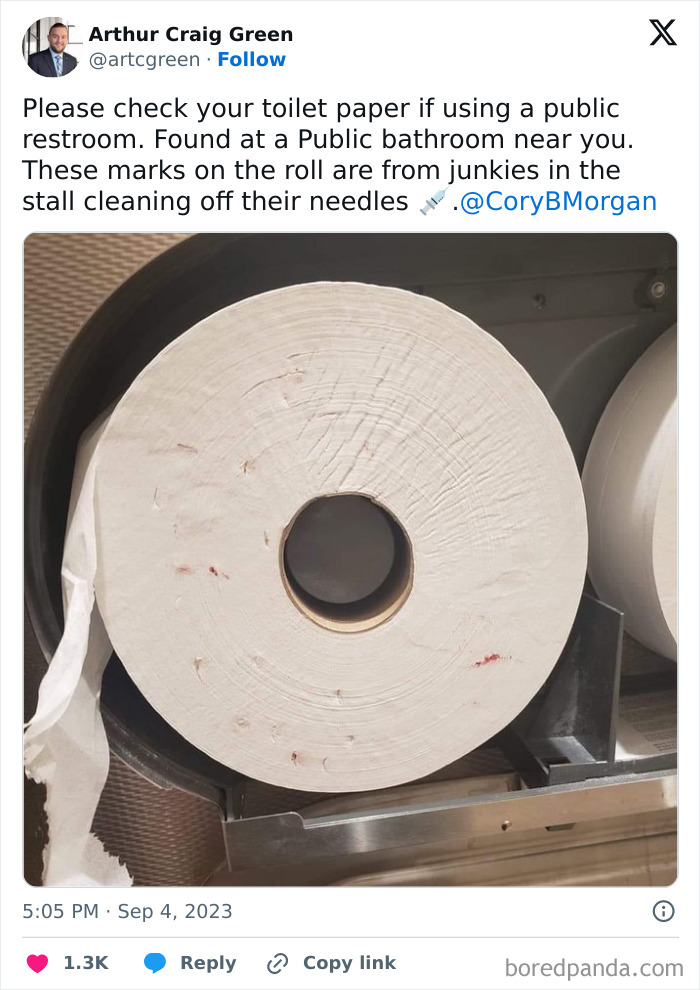
In the caption beneath his PSA, he laid out clear guidelines: check rolls for punctures, dampness, or dirt; avoid using unwrapped or visibly soiled paper; wash your hands after touching public surfaces; and be cautious if you have cuts or open wounds.
His closing line read: “Your backside deserves better.”
The doctor recommended people to carry wipes or toilet paper when leaving the house to avoid getting in contact with pathogens
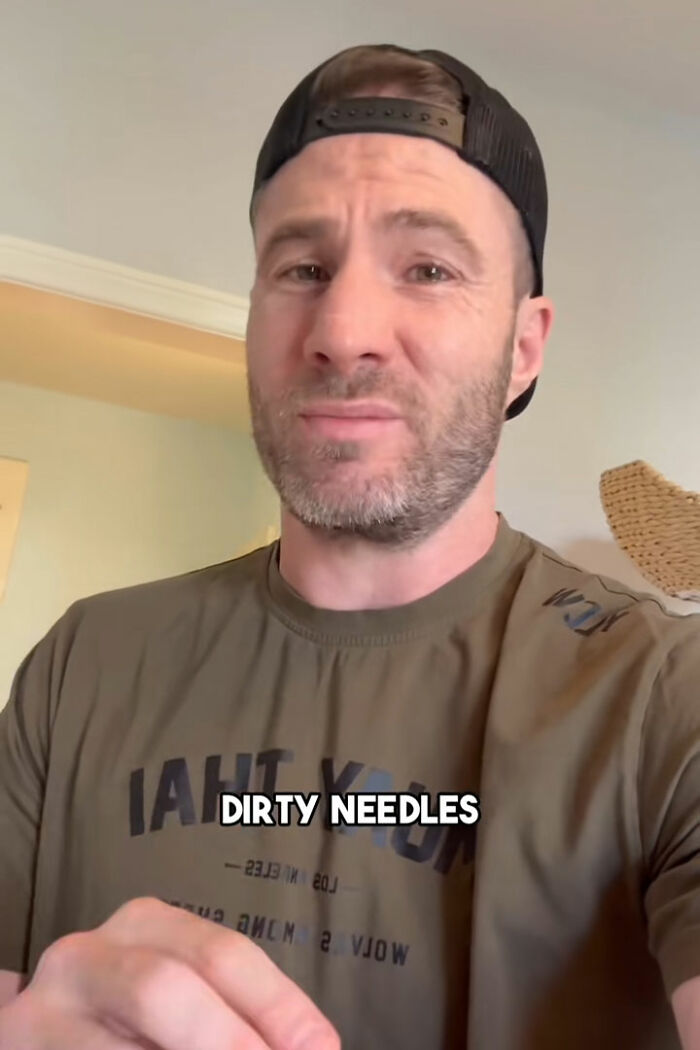
“Public restrooms can be unpredictable environments,” Dr. Joe explained in an interview.
“While it’s rare, there have been reports of illegal substance paraphernalia being improperly disposed of or cleaned using items like toilet paper.”
The doctor clarified that most users won’t face any danger, but even the smallest risk of bloodborne pathogens like hepatitis B, hepatitis C, or HIV being involved was worth taking seriously.
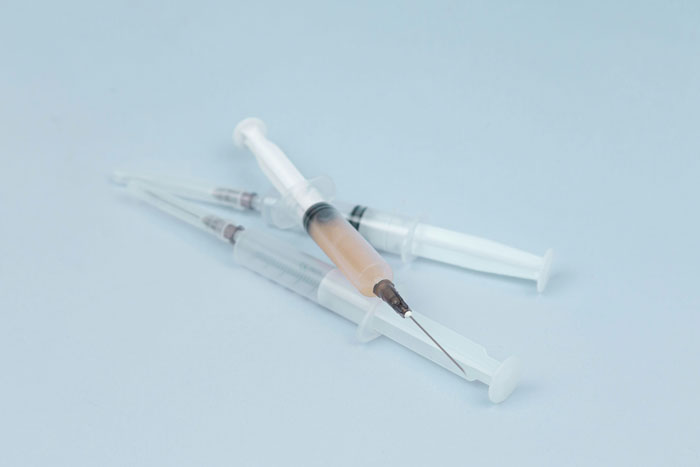
“This is especially true if someone has cuts, open wounds, or compromised skin that could come into contact with contaminated surfaces,” he added.
According to the Centers for Disease Control and Prevention (CDC), hepatitis B can remain infectious on surfaces for at least 7 days, even when no blood is visible.
Hepatitis C was once believed to survive no longer than 4 days, but newer studies show it can remain viable for weeks in dried blood or under favorable conditions.
HIV, on the other hand, is far less stable, typically losing its ability to infect once fluids dry, even then, transmission is still possible through fresh blood or in enclosed spaces like used needles.
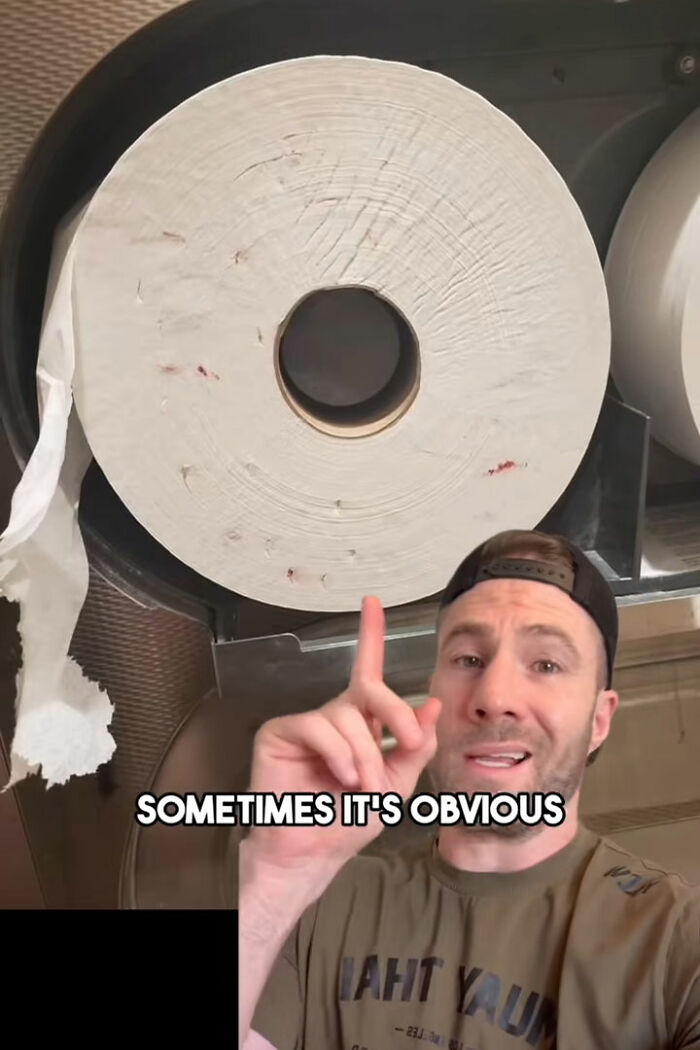
“That’s why simple precautions, like inspecting toilet paper rolls, avoiding visibly soiled or damp paper, and using flushable wipes you bring yourself, can be smart public hygiene practices,” the doctor said.
The doctor’s recommendation to use wipes was criticized by many, as these items are known to damage sewer systems
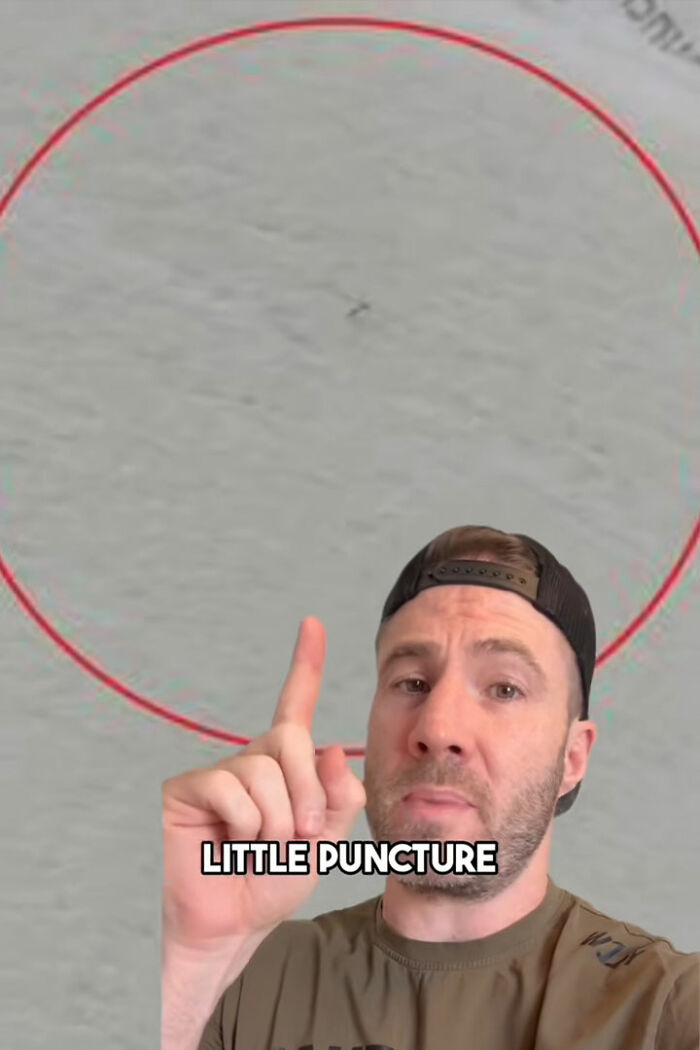
But while most comments expressed their horror and disappointment at the situation, others took issue with the doctor’s recommendation to bring wipes which they believe aren’t really as “flushable” as he says.
“My brother is a plumber,” one commenter wrote.
“He says he ends up unclogging a lot of drains because of ‘flushable’ wipes. They’re not really flushable. DO NOT flush them. Carry a roll of regular ol’ toilet paper instead.”
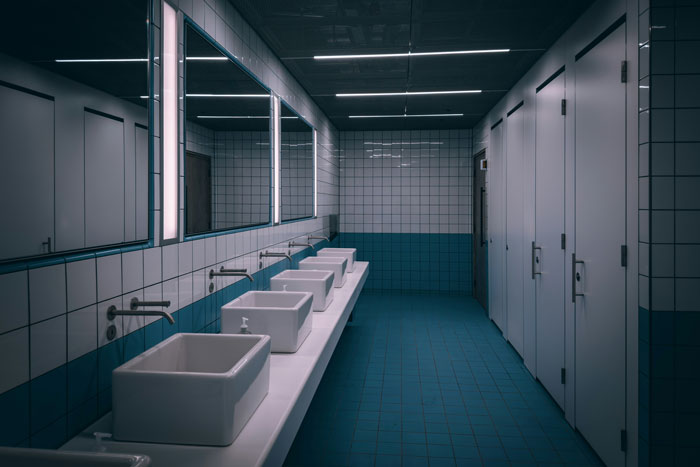
In 2020, the US Environmental Protection Agency (EPA) issued an official warning to all Americans to only flush toilet paper instead of disinfecting wipes or similar items.
“Flushing anything other than toilet paper can damage internal plumbing, local sewer systems and septic systems,” the agency wrote.
@drjoe_md 🚽 PSA: Check the toilet paper before you wipe. Yeah, I wish this was a joke too. Some public restrooms have had toilet paper rolls used to clean needles… and then put right back like it’s no big deal. 🤢 🧻 Here’s how to avoid unwanted surprises: ✔️ Inspect the roll (damp, dirty, or sketchy = hard pass) ✔️ Don’t use TP that’s not wrapped or hanging clean ✔️ Keep flushable wipes on hand ✔️ Wash your hands after touching public surfaces ✔️ If you’ve got open cuts—be extra careful Your butt deserves better. VC: @cody1kenobii #publicrestroom #infectionprevention #healthhazard #germaphobe ♬ original sound – Dr. Joe, M.D. 🩺
These concerns were mirrored by local agencies, such as the New York City Department of Environmental Protection.
“Wipes, even ‘flushable’ ones may clear your toilet but they can get caught in your internal plumbing as they don’t break down in the sewer system like toilet paper,” the department wrote.
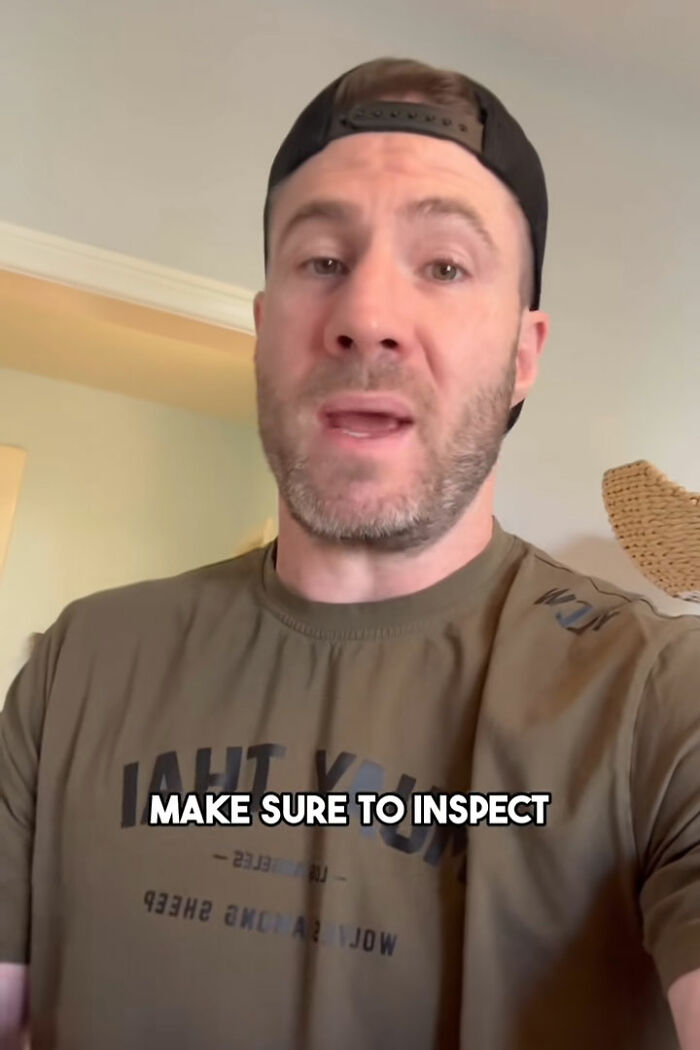
These items end up generating something known as “fatbergs,” which are masses of congealed grease and hygiene products found lingering in sewers around the world. They can grow as large as 6 feet, and are costly to remove.
“New fear unlocked.” Netizens lamented dirty needles touching toilet paper in public restrooms








